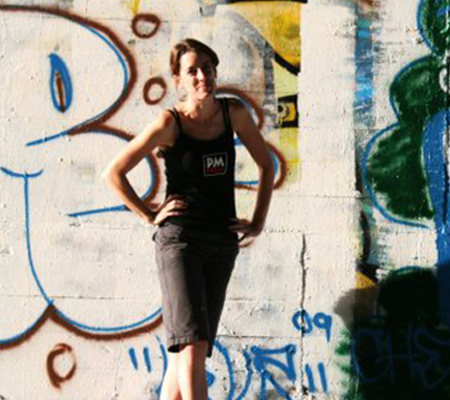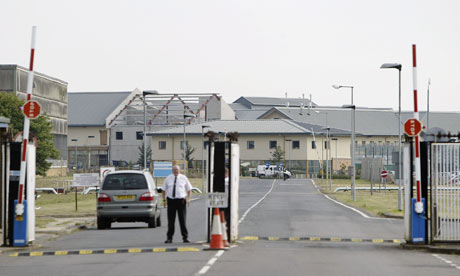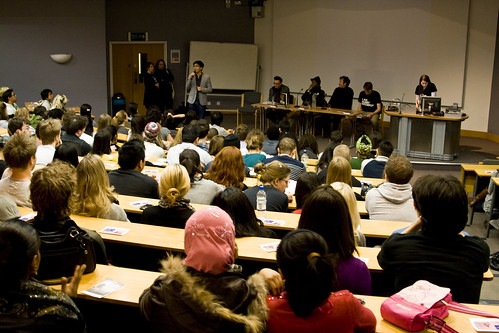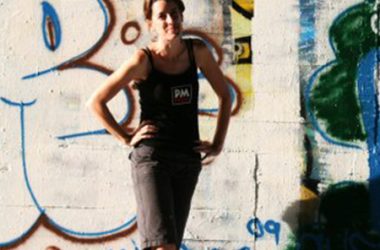By Andrea Gibbons
How do you organise around ideals and fight back in a system designed to control and repress any and all dissent? It is an important question for all of us, but how much more so for those actually trapped behind prison walls?
On the 9th at Birkbeck we held a small workshop with Robert King of the Angola 3 and Denise McNeil of the Yarl’s Wood 3, sponsored by the law college and holding maybe thirty people or so. We took the opportunity to do it, with the help of the marvelous Sarah Lamble and Isabelle Fremeaux of Birkbeck, given Robert King is back in London!
It’s always such a pleasure to have him here, though I confess I have
been dead sick this go round. But the antibiotics have kicked in and I
am finally getting round to the blog!
The goal was to get into an in depth discussion of the parallels between two countries increasingly turning to prisons to control their populations. The stats on the US are familiar enough, two and half million in prison, over 8 million within the system through probation, one in nine black males under twenty-five in jail. The UK seems to stretching itself to join it: prison populations have hit record highs, and as a proportion of the population, blacks are incarcerated at an even higher rate. Only this month, Met officers were asked to explain why blacks were the victims of tasering at such a higher rate (50 percent of recorded taserings, though about 2 percent of the population).
Denise was getting her son ready for school when the police and immigration burst into the block of flats looking for the man living upstairs. They searched her flat looking for him, and arrested her violently in front of her son for the small amount of cannabis in her bag. Violence has been at the forefront of her encounters with the system. She served her six months, and was then immediately transferred to another prison to await deportation. She was there a year and a half, and only just recently released on bail after long struggle in the courts. Two other women, Sheree Wilson and Aminata Camara, remain in prison.
Her stay in immigration prison was both indefinite and abusive, and she joined other women in a five week hunger strike. She was there when the guards locked the striking women into a corridor for hours with no toilet facilities, food or water. She was beaten by guards and placed into solitary confinement for four weeks. You can read Denise’s statement on the hunger strike as given to the Guardian two weeks into it here.
In Yarl’s Wood the women worked to overcome barriers of language and race to come together and strike to improve their conditions; those perceived as the leaders were thrown into solitary. Angola the same, with the duration of solitary being the primary difference. As King said, however, solitary always changes you, traumatizes you, no matter how long or short a time you stay there. He has known men to be broken in only a day, it is in itself an inhuman thing to do to another human being and should be abolished.
So how did they organize? Talking to each other, the way you do on the outside. In some UK prisons you are allowed mobiles, which clearly facilitates things a great deal. But you can always pass messages. King remembers from solitary, men who were so skilled they could bank rolled up balls of newspaper off of a wall and into any cell they chose. You bribe orderlies and guards with cigarettes. You use fraying threads from your shirt to create strings to pass or collect notes. The ingenuity of human beings is incredible, and where there is a will to organise and improve conditions, there seems to be a way to do it.
This is just a very small taste of Wednesday’s inspiration of course, I’d definitely encourage you to listen to the podcast here, and please do look at the campaign pages for the Angola 3 and the Yarl’s Wood 3 to see what you can do.
There have been a whole round other events for King of course. We started it all off on Monday 7th March at UCL, screening In the Land of the Free to over 300 people in the Cruciform Theatre, followed by a discussion with King and director Vadim Jean. We also heard poignant statements from the other two of the Angola 3, Albert Woodfox and Herman Wallace, sent to us from their cells where they continue to be held unjustly:
Similar events were held at Birkbeck, Centerprise, the George Padmore Institute, the Karibu Centre and Rio Cinema in Hackney. A great tour all round, and still a few more private events to go…
So if you missed the events, buy a book or dvd, I promise you will not regret it, and your money will go to Robert or the Angola 3 campaign. No better cause I could think of.





